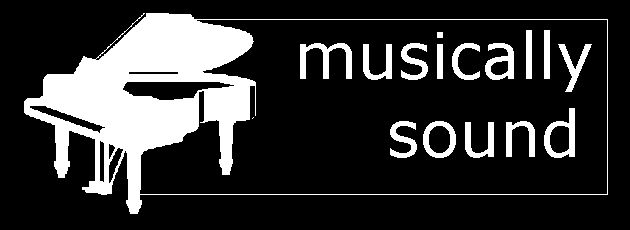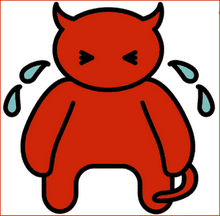 Interpol
InterpolOur Love to Admire
[Rock]
Of all the great post-millennial records to have emerged from the renewed New York indie scene (Is This It, Fever To Tell, Bows and Arrows, Blueberry Boat, Misery Is a Butterfly), Interpol's Turn on the Bright Lights stands out as the most important. Released less than year after 9/11, it perfectly captured the air of doom, alienation and misery that pervaded the city back in 2002. It was also a near-perfect record, wallowing in an apocalyptic mire of cold-warm guitar textures, skeletal rhythms and gloomy atmospherics, all perfectly suited to a midnight jaunt through modern-day NYC.
2004's Antics was the ideal companion piece - ten well-crafted, finely-tuned singles squeezed together on a single disc - and justified Interpol's reputation, alongside the White Stripes and Radiohead, as one of the twenty-first century's few great bands . Cue undivided attention, heaps of pressure, rumours of a split, unusually bated breath and the inevitable major label move ahead of their third full-length, Our Love to Admire; most listeners, it would seem, expected the OK Computer of the noughties (and, almost exactly ten years down the line from that fateful release date, those expectations were perhaps understandable).
Inexorably, therefore, Our Love was always going to be a disappointment. Interpol are not (yet) the type of band to produce an OK Computer: their sound, though fresh, is predictable; their ambition, though impressive, is limited; their self-seriousness, though apparent, is not quite serious enough. However, what they have produced is a pretty good disappointment, replete with trademark Interpol depth, wonder, polish and, perhaps most importantly of all, choonz.
Despite leaning more toward Antics, Our Love attempts to incorporate the best elements from each of the band's first two records. And, like most efforts of its type (two relatively recent examples being Squarepusher's Hello Everything and Bjork's Volta), it is very calm, clean-cut and consistent. Though never quite succumbing to the spectre M.o.R. banality, there are moments when any sense of urgency seems to be lacking. For example, closing couplet 'Wrecking Ball' and 'The Lighthouse' fail to advance beyond second gear, while The Scale' plods like an Antics offshoot with main man Paul Banks sounding willfully disinterested.
Part of the problem stems from the altered power structure within the band: where Carlos D and Sam Fogarino were once the Clyde to Banks and Daniel Kessler's Bonnie, they now play a distinctly minor role in the majority of Our Love's eleven songs. In itself that isn't a problem, but what it does mean is that, when Kessler and Banks can't manage a good riff, the rhythm section is no longer on hand to bail them out. Take, for instance, the repetitive up and down melody that ambles through four-and-a-half minutes of 'Pace Is the Trick', begging for a winding bass-line or some more imaginative time-keeping.
However, in spite of all the nit-picking, Our Love is still an enjoyable listen more often than not. Among the highlights, 'Pioneer to the Falls' continues Interpol's habit of opening records with a winning number, almost equaling the disparate, unrivalled majesty of 'Untitled' or the restrained brilliance of 'Next Exit'. An excellent starter for ten, it immediately intrigues with a taut, ringing guitar line and tickles of piano, before Banks' still-eerie robot drone and deep-sea drum 'n' bass give the song a menacing edge. Further in, Kessler goes more post-rock than is normally considered decent with some dazzling guitar shimmers reminiscent of Explosions in the Sky at their Those Who Tell the Truth best.
Elsewhere, 'Who Do You Think?' recalls the stripped-down, guitar-pop sensibilities of of 'Slow Hands', 'No I in Threesome' is the cheeriest song the foursome have ever recorded, and the one-two punch of 'The Heinrich Maneuver' and 'Mammoth' - both stoked up to the eyeballs with self-righteous bitterness - are typically invigorating.
Technically, Banks' vocals have come on leaps and bounds from TOTBL's monotone drawl. Though not necessarily a required progression (a sustained, one-note baritone certainly didn't do Ian Curtis any harm), he now has the capacity to carry songs which fail to excite musically. For example, drug-fuelled paean to sobriety 'Rest My Chemistry' would be rather uninspiring without the surprisingly heartfelt delivery, while 'All Fired Up' is similarly spared from being conventional stutter-rock post-punk fare.
Owing to the occasional clanger (see, for instance, "Her stories are boring and stuff / She's always calling my bluff" on TOTBL's 'Obstacle 1', or "The stars we will navigate through the holes in your eyes" on Antics' 'Public Pervert'), baby-faced misanthrope Banks is often assumed to be a poor wordsmith. Such sentiment is not only misguided; it is deceitful and facetious, akin to inferring Bowie or Dylan's cultural significance from their unlistenable late '80s output. More often that not, Banks' musings glimmer with corporeal beauty ("Her rabid glow is like braille to the night" from 'Leif Erikson') or delight with cunning ("The underground drip was just like her scuba days" from 'Stella Was a Diver...'). Occasionally, they can even do both ("I bounce you on the lap of silence / We will free love to the beats of science" from 'Not Even Jail').
Our Love continues the trend, positively brimming with poetic intrigue ("Show me the dirt pile and I will pray / That the soul can take three stowaways" from 'Pioneer...') but periodically undermined by a lazy, forced rhyme ("You're like a daisy in my lazy eye" from 'Rest My Chemistry'). The wicked sense of humour also remains, best illustrated by Banks' deadpan delivery of the titular line from 'No I in Threesome'. Minor creases aside, he remains a significant lyricist.
So, while Interpol's third record is their weakest, it is nevertheless streets ahead of much of the competition. The inevitable self-consciousness accompanying a major label switch, coupled with the increasingly guitar-led compositional style, has taken some of the edge off their work, but, as is the case with all important bands, they are experiencing a transitional phase. We can only hope they emerge successful, changed but unscathed, on the other side. 70
2004's Antics was the ideal companion piece - ten well-crafted, finely-tuned singles squeezed together on a single disc - and justified Interpol's reputation, alongside the White Stripes and Radiohead, as one of the twenty-first century's few great bands . Cue undivided attention, heaps of pressure, rumours of a split, unusually bated breath and the inevitable major label move ahead of their third full-length, Our Love to Admire; most listeners, it would seem, expected the OK Computer of the noughties (and, almost exactly ten years down the line from that fateful release date, those expectations were perhaps understandable).
Inexorably, therefore, Our Love was always going to be a disappointment. Interpol are not (yet) the type of band to produce an OK Computer: their sound, though fresh, is predictable; their ambition, though impressive, is limited; their self-seriousness, though apparent, is not quite serious enough. However, what they have produced is a pretty good disappointment, replete with trademark Interpol depth, wonder, polish and, perhaps most importantly of all, choonz.
Despite leaning more toward Antics, Our Love attempts to incorporate the best elements from each of the band's first two records. And, like most efforts of its type (two relatively recent examples being Squarepusher's Hello Everything and Bjork's Volta), it is very calm, clean-cut and consistent. Though never quite succumbing to the spectre M.o.R. banality, there are moments when any sense of urgency seems to be lacking. For example, closing couplet 'Wrecking Ball' and 'The Lighthouse' fail to advance beyond second gear, while The Scale' plods like an Antics offshoot with main man Paul Banks sounding willfully disinterested.
Part of the problem stems from the altered power structure within the band: where Carlos D and Sam Fogarino were once the Clyde to Banks and Daniel Kessler's Bonnie, they now play a distinctly minor role in the majority of Our Love's eleven songs. In itself that isn't a problem, but what it does mean is that, when Kessler and Banks can't manage a good riff, the rhythm section is no longer on hand to bail them out. Take, for instance, the repetitive up and down melody that ambles through four-and-a-half minutes of 'Pace Is the Trick', begging for a winding bass-line or some more imaginative time-keeping.
However, in spite of all the nit-picking, Our Love is still an enjoyable listen more often than not. Among the highlights, 'Pioneer to the Falls' continues Interpol's habit of opening records with a winning number, almost equaling the disparate, unrivalled majesty of 'Untitled' or the restrained brilliance of 'Next Exit'. An excellent starter for ten, it immediately intrigues with a taut, ringing guitar line and tickles of piano, before Banks' still-eerie robot drone and deep-sea drum 'n' bass give the song a menacing edge. Further in, Kessler goes more post-rock than is normally considered decent with some dazzling guitar shimmers reminiscent of Explosions in the Sky at their Those Who Tell the Truth best.
Elsewhere, 'Who Do You Think?' recalls the stripped-down, guitar-pop sensibilities of of 'Slow Hands', 'No I in Threesome' is the cheeriest song the foursome have ever recorded, and the one-two punch of 'The Heinrich Maneuver' and 'Mammoth' - both stoked up to the eyeballs with self-righteous bitterness - are typically invigorating.
Technically, Banks' vocals have come on leaps and bounds from TOTBL's monotone drawl. Though not necessarily a required progression (a sustained, one-note baritone certainly didn't do Ian Curtis any harm), he now has the capacity to carry songs which fail to excite musically. For example, drug-fuelled paean to sobriety 'Rest My Chemistry' would be rather uninspiring without the surprisingly heartfelt delivery, while 'All Fired Up' is similarly spared from being conventional stutter-rock post-punk fare.
Owing to the occasional clanger (see, for instance, "Her stories are boring and stuff / She's always calling my bluff" on TOTBL's 'Obstacle 1', or "The stars we will navigate through the holes in your eyes" on Antics' 'Public Pervert'), baby-faced misanthrope Banks is often assumed to be a poor wordsmith. Such sentiment is not only misguided; it is deceitful and facetious, akin to inferring Bowie or Dylan's cultural significance from their unlistenable late '80s output. More often that not, Banks' musings glimmer with corporeal beauty ("Her rabid glow is like braille to the night" from 'Leif Erikson') or delight with cunning ("The underground drip was just like her scuba days" from 'Stella Was a Diver...'). Occasionally, they can even do both ("I bounce you on the lap of silence / We will free love to the beats of science" from 'Not Even Jail').
Our Love continues the trend, positively brimming with poetic intrigue ("Show me the dirt pile and I will pray / That the soul can take three stowaways" from 'Pioneer...') but periodically undermined by a lazy, forced rhyme ("You're like a daisy in my lazy eye" from 'Rest My Chemistry'). The wicked sense of humour also remains, best illustrated by Banks' deadpan delivery of the titular line from 'No I in Threesome'. Minor creases aside, he remains a significant lyricist.
So, while Interpol's third record is their weakest, it is nevertheless streets ahead of much of the competition. The inevitable self-consciousness accompanying a major label switch, coupled with the increasingly guitar-led compositional style, has taken some of the edge off their work, but, as is the case with all important bands, they are experiencing a transitional phase. We can only hope they emerge successful, changed but unscathed, on the other side. 70



No comments:
Post a Comment